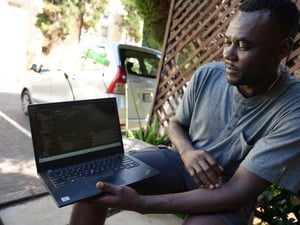Ethiopia hosts high-level dialogue on refugee inclusion and support to host communities
Ethiopia hosts high-level dialogue on refugee inclusion and support to host communities

Delegates at the High-Level Dialogue on advancing refugee inclusion and support to host communities in Ethiopia
The Government of Ethiopia through Refugees and Returnees Service - RRS, in collaboration with UNHCR, the UN Refugee Agency, hosted a High-Level Dialogue in Addis Ababa on Advancing Refugee Inclusion and Support to Host Communities.
The high-profile gathering brought together senior leaders and stakeholders, including government officials, state ministers, regional government representatives, academia, business institutions, representatives of international organizations, including UN Agencies and international financial institutions, the private sector and civil society, among others to reaffirm Ethiopia’s commitment to a transformative, inclusive approach to protect over 1.1 million refugees and support over 1.6 million hosting communities. The dialogue was attended by Mr. Filippo Grandi, United Nations High Commissioner for Refugees, and it served as a platform to reflect on progress, share experiences and chart a collaborative path forward.
The event highlighted Ethiopia’s leadership in aligning national efforts with the Global Compact on Refugees and advancing Ethiopia's commitments made at the Global Refugee Forum, while also strengthening regional and international partnerships. It also explored policy, financing and operational strategies to enhance shared national systems, and emphasized the importance of inclusive, community-driven solutions. Central to the discussion was the voices of refugees and host communities, whose lived experiences and aspirations are vital to shaping effective, long-term responses.
The dialogue represented a pivotal moment to align vision, resources and partnerships - ensuring that refugees are not only protected but also empowered to meaningfully contribute to their gracious hosting communities as valued members of resilient and inclusive communities.
In order to respond to the growing needs of refugees, the Government has adopted a bold, forward-looking legal frameworks and strategies that integrate refugees into national systems. The practice of inclusion is not a new phenomenon in Ethiopia - refugees’ right to work, start businesses and access financial services emanates from the provisions of the progressive Refugee Proclamation 1110/2019. Hence, they are provided with a digital identity through a Fayda ID and equitable access to education, healthcare, water, sanitation and hygiene (WaSH), telecoms, employment, among others.
Furthermore, Ethiopia has made substantial progress in the inclusion of refugee students into its national education system, guided by strong legal and policy frameworks. A key milestone was the adoption of the 2019 Refugee Proclamation, granting refugees the right to access public education alongside Ethiopian citizens.
Given that a significant number of refugees coming to Ethiopia originate from rural areas, where agriculture and livestock are the backbone of the economy, refugees are encouraged to contribute in the country’s agricultural sector, especially in hosting regions having agricultural potential but lack sufficient labor, investment or infrastructure.
Ethiopia has also undertaken important legal and policy reforms to support the inclusion of refugees in national development initiatives, particularly in skills training and employment opportunities. Apart from the 2019 Refugee Proclamation, which grants them the right to work, start businesses and access financial services, Labor Proclamation 1156/2019 has extended labor protection to all wage-employed workers, including refugees. The Homegrown Economic Reform Agenda and 10-Year Development Plan, where both emphasize inclusive, human-centred development and identify vulnerable groups as priority populations, are also worth mentioning.
The "Solutions from the Start” model already practiced in the Alemwach, Ura and Mirqaan refugee sites/settlements is an existing testament to inclusion. This marks a significant shift from traditional humanitarian, often parallel, responses to a whole-of-government and whole-of-society approach rooted in protection, dignity and sustainable development.
As inclusion is well underway thanks to robust legal and policy frameworks, sustainable investment, system and capacity building and coordinated partnerships are crucial in bridging service gaps and ensuring universal and equitable care for refugees and host communities in Ethiopia.
END
For more information, contact:
- In Addis: Sileshi Demisew, [email protected],+251 91 202 3969
In Addis: Sona Dadi, [email protected], +251 932 459 640


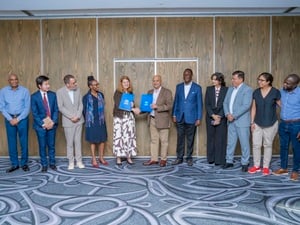

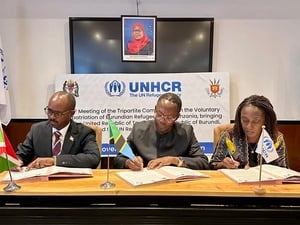
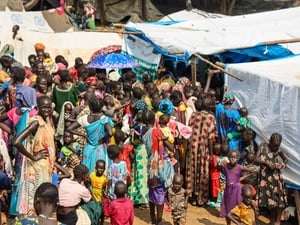

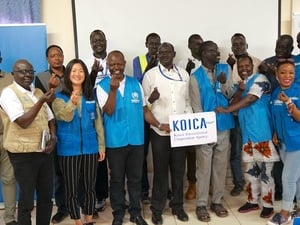
![To improve access to sustainable energy and increase agricultural production for both refugees and their host communities, UNHCR is working with the Zambian authorities to connect all three refugee settlements in the country to the national grid. UNHCR has also supported the construction of value-addition centres in the settlements, which provide refugee farmers with various services such as storage, processing, packaging, and refrigeration to improve productivity and increase access to local markets, including the mining industry.“We are currently getting fruits and vegetables from refugee [farmers],” said Priscilla, community relations officer at Golden Camp Solutions, a private catering company that serves employees of Lumwana copper mine. “We are looking at a ton of cabbage a week and about 500 kilograms of tomatoes. There is no difference between a refugee supplier and a regular supplier.” Zambia. Zambian farm communities reap the benefit of giving opportunities to refugees](/africa/sites/afr/files/styles/d03_traditional/public/RF1442455.jpg?h=10d202d3&itok=8wPBFW9q)
